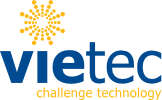
The IoT (internet of things) is a concept that connects any device that has an on/off button to the internet. This is anything from mobile phones, to coffee makers; if it has a switch then the chances are it can be a part of IoT. Essentially it is a giant network of connected ‘things’.
A big disadvantage attached to IoT will be the eventual loss of jobs on a global basis. The plans for IoT are to replace humans working in jobs that could be carried out by a device. This will result in money being saved overall, however for individual’s jobs being lost. In addition, if this is the only job you are trained to carry out then you essentially will be out of a job for good.
Another disadvantage is sudden failure. We all know how easy it is for a phone/tablet to shut down and take its time to come back on. What if everything in our lives is running off IoT and it gets shut down for an hour? How will that be solved? With all your personal information being stored online, how will this be protected? Will it be easy enough for someone to hack and steal your information?
With this taken into consideration, there are advantages attached. One would be the ability to know how many loaves of bread you have the in house, if you are out of butter etc. This will save on time and petrol and will eliminate the need to be back and forth going to the shops.
Even though the loss of jobs is set at a very big disadvantage, the amount of money that will be saved per annum may put your mind at ease. The money saved could be invested in the NHS, Education etc. IoT will present a very substantial change in everyday life. We will rely on our devices to update us, and even work for us. However, this is still just a concept. There are no guarantees that IoT will take over our everyday life like in the manor they are suggesting. It is though, good to understand in advance so you can prepare yourself for one very immense potential change.
